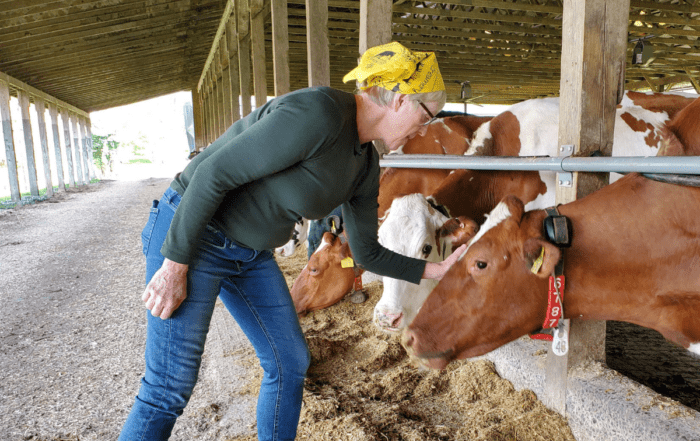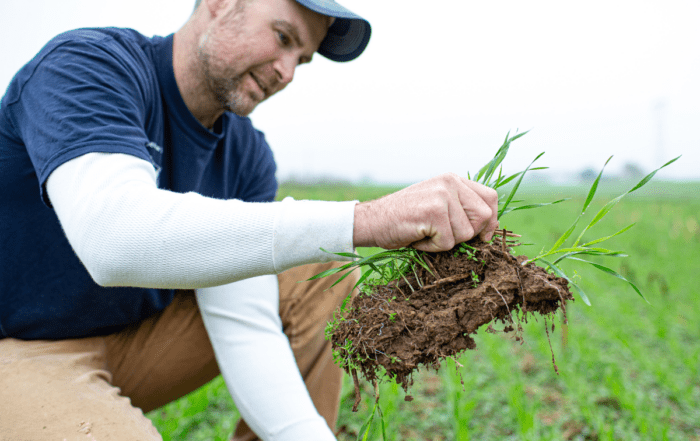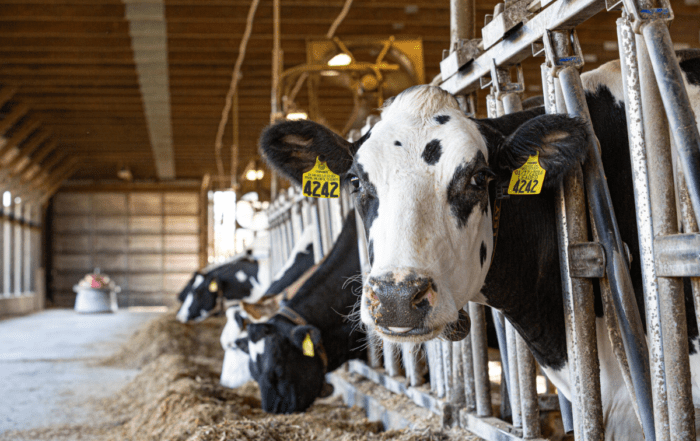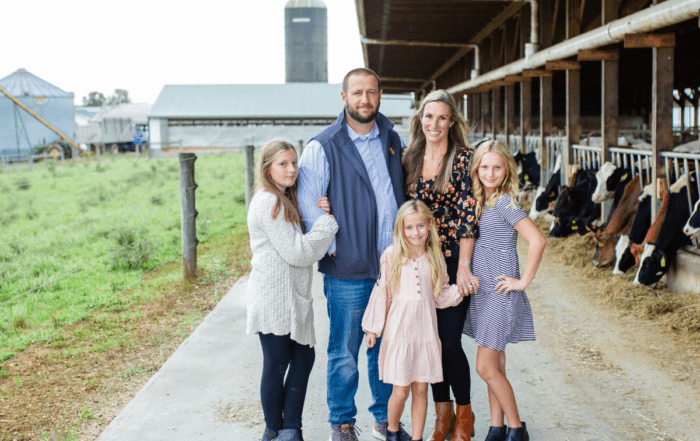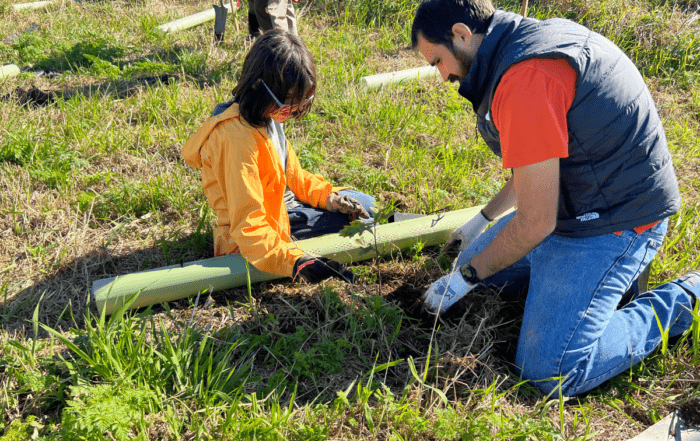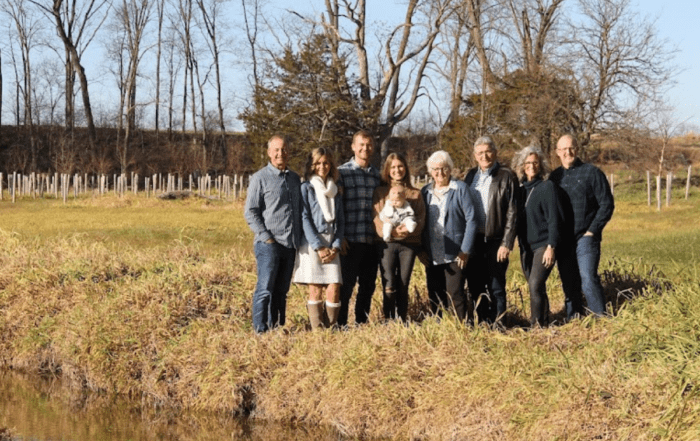For the Dairy Industry, Sustainability is the Goal
Dairy farmers contribute to a sustainable food system. They support practices that make economic sense, help the environment and are socially responsible to our communities and our world.
The latest research shows that the U.S. dairy industry accounts for only about 2 percent of U.S. greenhouse gas emissions. Still, dairy farmers are working on ways to reduce that figure even more. Between 2007 and 2017, dairy farming used about 21% less land, 30.5% less water, 20% less fuel, and 17% less feed. Their work continues as the dairy industry has committed to achieving greenhouse gas neutrality by 2050.
More milk is produced today with only 9 million dairy cows than with 26 million dairy cows in 1944. While providing a supply of healthy milk for consumers and protecting the environment, dairy farmers oversee some of the most efficient, productive cows in the world!
Manure Management and Waterway Protection
All dairy farms must meet state and federal standards for manure storage, handling and recycling. Dairy farmers recycle manure according to detailed nutrient management plans that help conserve soil and protect local streams, rivers and estuaries like the Chesapeake Bay. Cow manure is used to fertilize crops, part of a sustainable cycle that allows dairy farmers to make nutritious foods available to people. In fact, manure can even be used to create clean, comfortable cow beds.
Other Sustainable Dairy Farming Practices
Farmers also use many other best management practices such as no-till farming, energy conservation, solar panels and streambank protection. For example, E-Z Acres, Reinford Farms and Twin Birch Dairy were highlighted as environmental stewards by the Innovation Center for U.S. Dairy.
Some dairy farms are using technology that has environmental benefits. Methane digesters, for example, allow dairy farms to produce renewable energy. A digester collects methane gas released from cow manure and other materials and converts it to electricity that can power the dairy farm and other homes in the community. This process not only powers the dairy farm, but can also supply electricity to homes in the community. There are many ways to be sustainable like a dairy farmer, and this is just one example of how innovative practices can contribute to a greener future.
Hear Brett Reinford talk about his family farm and how their methane digester processes food waste into energy.
Dairy farmers continuously work with government and university experts to find even more ways to conserve natural resources. For example, they have found creative ways to recycle water and other materials, and prevent soil erosion — activities that help ensure their farms remain economically viable.
Want to Learn More?
Check out these highlights of some of the many things farmers do to protect the environment today and for future generations.

